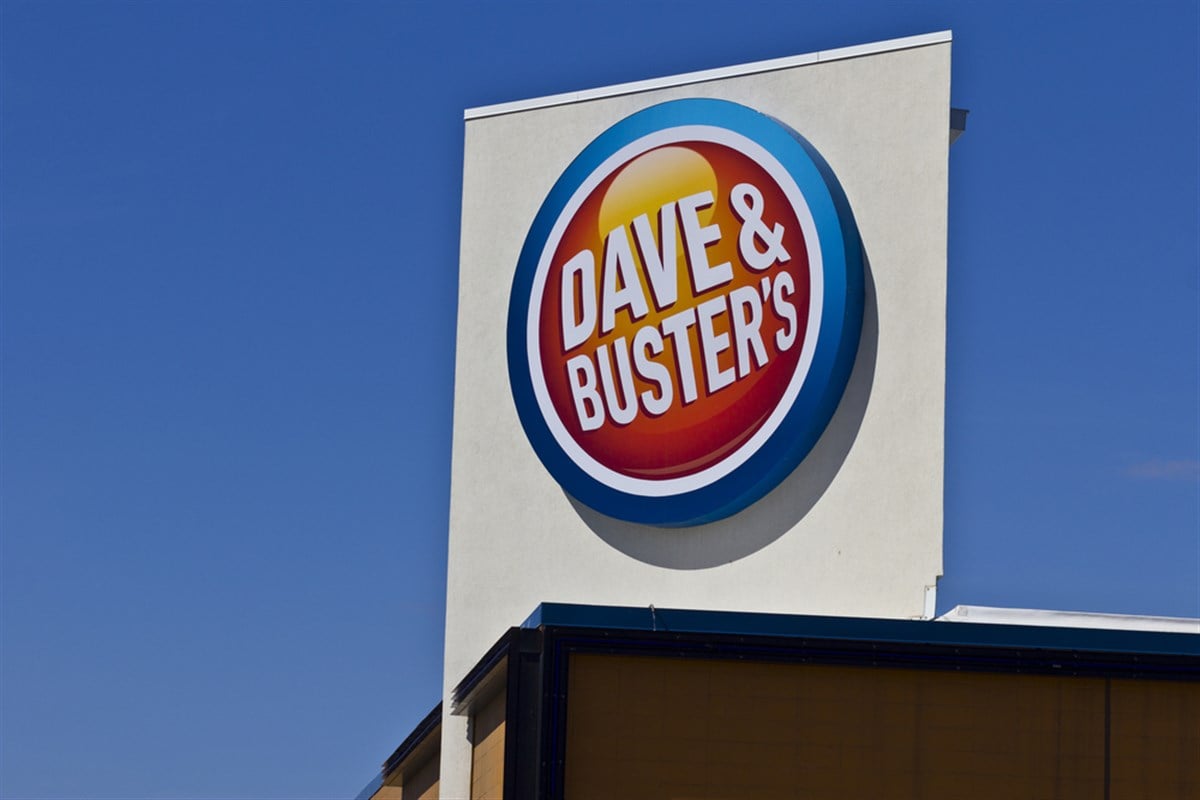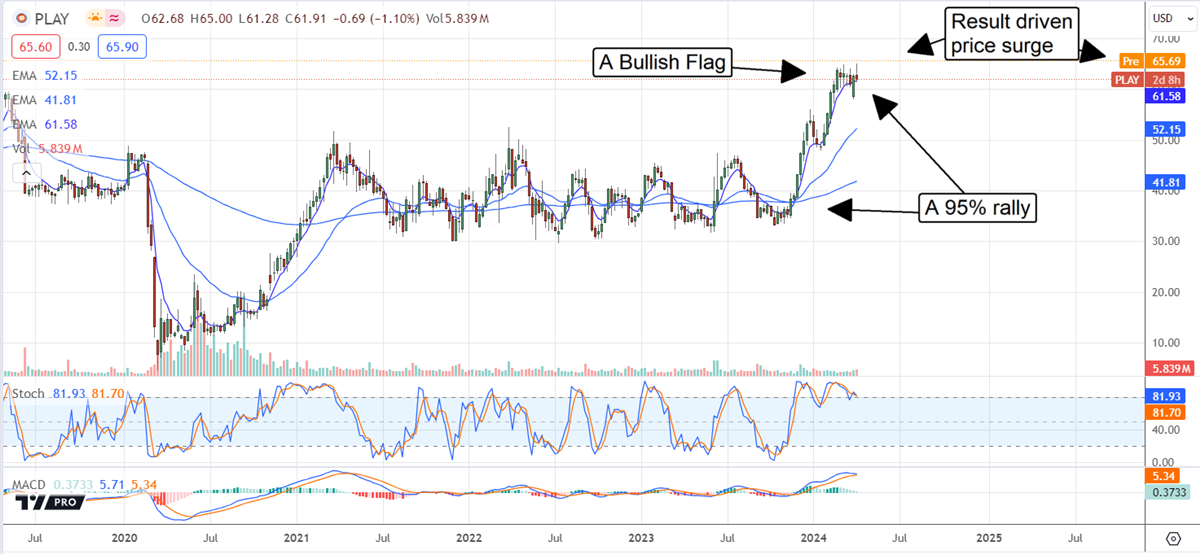
Dave & Buster’s (NASDAQ: PLAY) investors can cheer the CQ1 results because it affirms a story played out over the years. The company leaned hard into growth, revenue quality, profitability, and capital returns yet failed to increase its share price. Now, the company is in rally mode, aided by activist investors with a track record of success. The stock is up nearly 100% since the rally began, including a 5% post-release pop that confirms a bullish technical outlook
Dave & Buster’s chart of weekly price action shows a clear, nearly text-book rally with a Bullish Flag Pattern consolidation. The 5% price surge confirms the pattern and suggests the rally will continue and could double from here. In that scenario, this stock could increase to $120 to $125 over time, and any price dips that occur along the way are likely buying opportunities.
Dave & Buster’s Long-Term Goals Are Strengthened
Dave & Buster’s had a good quarter despite revenue and earnings falling short of the consensus. The results are better than feared due to the impact of weather, which was estimated to impact results that would have been materially better. Regardless, the company reported $599.1 million in net revenue, a gain of 6.3% over last year. The gains are due primarily to the extra week and new stores; comp sales are down 7% YOY.
The margin news is solid. The company widened margin at all levels despite the deleveraging effect of weak comps and the cost of new store openings and remodels. The restaurant level operating margin widened by 80 bps and the operating margin by 130 bps, driving a 1000 basis point improvement in the GAAP net income and a 21% increase in adjusted earnings.
The company didn’t give specific guidance for 2024 but did provide sufficiently bullish commentary to affirm the outlook for robust EBITDA growth over time. CEO Chris Morris described 2024 as a transformative year for the company due to an expected accelerated store count, blossoming international expansion, and accelerating remodels. In his words, the company’s resolve to achieve $1 billion in EBITDA is strengthened.
The company expects to open nineteen new stores within twelve to eighteen months, four of which will be in overseas markets. The remodel tests that began last year were successful, and the new format will start rolling out system-wide this year.
Dave & Buster’s Cash Flow and Capital Returns Add Value
Dave & Buster’s efforts to improve cash flow include the balance sheet and debt. The company carries little debt with a net-debt-to-EBITDA ratio of 2.2X versus the 3.5X allowed by agreements, and carrying costs are declining. The company worked to narrow its spread and reduced estimated costs by $50 million annually.
The result of operations and cash-flow management is the ability to repurchase shares aggressively. The company repurchased $300 million or 8.5 million shares in F2023, reducing the share count by 17.5%. Because the board approved an additional $100 million in repurchases, bringing the total allowed up to $200 million, aggressive repurchasing is expected to continue.
Dave & Buster’s Is a Price-Multiple Expansion Play
Dave & Buster’s is a high-valued restaurant play compared to some, but it still has ample room to run given its valuation compared to market leaders. The market-leading restaurant plays include Texas Roadhouse (NASDAQ: TXRH) and Darden Restaurants (NYSE: DRI), which trade at significantly higher multiples. Darden is four handles above Dave & Buster’s 15X, and Texas Roadhouse is nearly double. The takeaway is that PLAY is a desirable stock and becoming more desirable by the quarter: capital flows into the market and should continue supporting higher share prices.
The market for PLAY is up more than 6% in early premarket trading and above critical resistance. The move to a new high is bullish, and momentum should carry the market higher, but there is risk. If the market cannot sustain the new highs, it may become range-bound at current levels. As good as the outlook is, economic uncertainty still clouds the view, and it may keep prices from advancing until later in the year.





